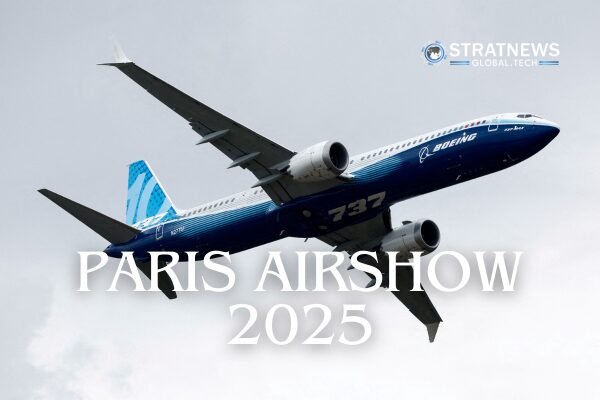Paris Airshow to Spotlight Big Aircraft Deals Amid Global Aviation Uncertainty
Aerospace giants will aim to project stability and progress at the upcoming Paris Airshow, even as tariffs, ongoing conflicts, and fragile supply chains continue to challenge the global aviation and defence industries.
Major Orders and New Technology Set to Take Centre Stage
The world’s largest aviation trade show will run from 16 to 20 June at Le Bourget, providing a global platform for showcasing advanced technologies like AI and autonomy. It’s also a key venue for announcing headline aircraft orders.
Airbus is expected to kick off the show on Monday with two significant orders from Saudi clients, underscoring strong air travel growth in the Gulf region. Meanwhile, Brazil’s Embraer could compete for a major order of around 100 small A220 jets from AirAsia.
Boeing is likely to finalise a key deal with Royal Air Maroc. However, after securing major orders during US President Donald Trump’s recent visit to the Gulf, Boeing may have a quieter week at the show compared to Airbus.
Behind the Scenes: Trade Tensions and Supply Chain Concerns
While the show offers public optimism, industry leaders remain concerned about Trump’s shifting tariff policies and ongoing geopolitical tensions. These issues continue to disrupt planning for manufacturers and suppliers.
Christian Scherer, CEO of Airbus’ commercial aircraft division, noted that suppliers were only just beginning to recover from the pandemic. “Now this uncertainty again,” he said, highlighting the pressure on smaller supply chain players.
Although a recent US-China trade truce lifted industry sentiment, many insiders expect 10% base tariffs to remain. Companies are lobbying for exemptions while adjusting to long-term impacts.
Despite challenges, experts believe Airbus will benefit from being on home ground. “It should be a good air show for orders,” said Richard Aboulafia of AeroDynamic Advisory.
Defence and Sustainability to Shape Industry Direction
Geopolitical tensions, especially the war in Ukraine, have caused shifts in air routes, cargo logistics, and insurance costs. In response, European countries are boosting defence budgets. Germany, Poland and Britain are investing heavily in air defence, drones, and next-gen fighter jets.
Drones will feature prominently at the show, particularly low-cost models that proved effective in Ukraine. These systems are now seen as cost-efficient and scalable solutions for modern warfare.
Nations are also reassessing their reliance on US defence support. As political alliances evolve and AI-powered systems rise in prominence, European governments are focusing on building local defence capabilities.
Another pressing issue is access to rare earth materials. While environmental concerns will be addressed at the show, this year’s focus may be more subdued due to the Trump administration’s reduced emphasis on green policies.
Airlines continue to support net-zero targets but are concerned about limited supplies of sustainable aviation fuels. Although Airbus had explored hydrogen-powered aircraft, progress has slowed.
Planemakers say the most effective way to reduce emissions now is through the delivery of newer jets that burn 15% less fuel. However, ongoing supply chain problems have delayed many aircraft handovers. Critics argue that continuous large-scale jet orders only prolong the industry’s dependence on fossil fuels.
with inputs from Reuters


